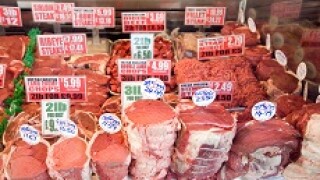Rabobank
-
Rabobank attracted good demand for a dual €2bn eight year and 20 year covered bond offering on Thursday, even though the deal was issued at the tail-end of a busy week and competed for investors’ attention in euros with Coventry Building Society and Všeobecná úverová banka (VUB).
-
Rabobank is set to open order books for a two-part euro covered bond that takes advantage of the demand for higher yielding debt with the inclusion of a 20 year tranche. At the same time Coventry Building Society is planning a seven year in euros.
-
The €350m listing in Amsterdam of Marel, the Icelandic meat processing machinery maker, is covered on the second day of bookbuilding, having gained early momentum partly by attracting two cornerstone orders.
-
Switzerland’s Sucafina has renewed its $300m syndicated loan, with all 11 banks that lent to the coffee trader’s debut in 2017 rejoining the deal as bankers say there is still not enough business to go around.
-
US firm Auramet has increased its syndicated loan to $190m, with the precious metals trader adding to its lending group for an oversubscribed deal.
-
Marel, the Icelandic meat processing machinery company, has secured cornerstone orders from BlackRock and Credit Suisse Asset Management for its €350m IPO on Euronext Amsterdam.
-
-
Nederlandse Waterschapsbank has inaugurated its updated social housing bond framework with a €1bn SRI issue. The new framework includes an environmental aspect alongside pre-existing social elements.
-
Vesteda, the Dutch housing company, proved there was plenty of hunger for green bonds on Thursday, when its first issue of the kind, a €500m no-grow eight year, hoovered up orders to finish six times oversubscribed.
-
The Dutch government is preparing to issue its first green bond next week, and has introduced a new feature to the market: investors can register as accredited green bond investors to receive preferential allocations.
-
Dutch firm Mercon Coffee Group has signed a $450m sustainability-linked revolving credit facility. The lead bank claimed the deal was the first of a kind.
-
The strength of corporate bond demand, after falls in stockmarkets engendered by the US's hardened stance on trade talks with China, will be tested in the US on Wednesday by a $20bn issue for IBM. In Europe, the test could come on Thursday, since a handful of issuers finished roadshows on Wednesday.










